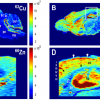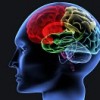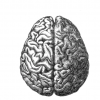Posts tagged Alzheimer’s

A novel approach for curing Alzheimer´s disease
Jun 24th
Alzheimer’s disease (AD) steals memories and disrupts lives of 5.4 million Americans (according to Alzheimer’s Foundation statistics) and 26.6 million people worldwide. Moreover AD is predicted to affect 1 in 85 people globally by 2050! AD still cannot be cured and is degenerative, so the sufferer relies on others for assistance, placing a great burden on the caregiver, who are mostly spouses or close relatives.
Now a new study conducted by a group Harvard, Boston University, The University of Alberta, The University of Arizona, and The Chopra Foundation ascribe AD memory loss to disruption of microtubules by zinc imbalance (March 23 More >

Will insulin come to the rescue of AD patients?
Sep 27th
Alzheimer disease (AD) is a neurodegenerative disease of the brain that is divided into early- and late-onset groups. AD is characterized by the build up of amyloid plaques, neurofibrillary tangles and the loss of connections between neurons. It is the most common type of dementia especially in the elderly. The exact causes of AD are elusive at the moment but are most likely the result of genetics and other factors. Scientist have been working hard to identify individual and or groups of genes responsible for the disease. Although the scientific community has identified may genes involved in early and late More >

Learning from Moths
Mar 15th
A student of mine seemed disappointed yesterday when I handed her a paper to read about Butterflies. I wanted to give an example of a nicely written scientific paper that was low on technicality and covered many of the same topics and techniques we had already engaged in class.
The response I got was less than enthusiastic. ‘But what’s the point of studying butterflies? Who would fund that?’ These questions are in reasonable complaints on the mind of many, non-scientists and scientists alike. A recent interview with the astronomer Neil deGrasse Tyson touches on the question of whether the exclusive purpose of More >

A Step Towards Understanding Alzheimer’s
Mar 10th
Alzheimer’s disease is a debilitating disease where neurons in the brain die. These neurons are called basal forebrain cholinergic neurons and their job is to help the hippocampus retrieve memories in the brain. Alzheimer’s disease patients do not have the ability to retrieve memories. It’s not that those memories are lost, they just cannot be retrieved. In early Alzheimer’s, these special neurons die. Since there are so few to be found within the brain, their death can quickly become devastating.
Northwestern Medicine researchers have made a major discovery that can aid in understanding and treating Alzheimer’s. These researchers have taken human More >

Treating Alzheimer’s – A walk in the park?
Jan 5th
Anecdotally it seems obvious that people who stay physically active face old age with greater resilience than their more sedentary peers. A new study, analyzing over a decade’s worth of data might be just the motivation to get couch potatoes moving.
Cyrus Raji et.al. from the University of Pittsburgh have shown that loss in brain volume (a symptom of old age) is decreased in those who are more physically active. A cohort of 299 adults (mean age of 78 years) were analyzed over the course of 13 years. After correcting for various factors, the Pittsburgh group concluded that walking around 72 More >

Alzheimer’s and Amyloids
Nov 15th
The word “factor” is often seen used in manuscripts of molecular biology and biochemistry as a fancy way of saying unknown. Before the inner workings of complex genetic of molecular pathways are understood, there are often clues that suggest the presence and operation of certain unknown and unnamed components which might be labeled factor for lack of a better term (e.g. transcription factor, or translation initiation factor). Later these factors may become well described; sometimes the term factor is dropped or in some cases, especially where it was applied to a single instance of what is a large family of More >

SNP Snoop: BDNF and driving ability; failed road test?
Nov 2nd
Could an alternative version of your brain-derived neurotropic factor be an excuse for your failed road test?
According to research published in the Journal, Cerebral Cortex, by Stephanie McHughen et.al., a key SNP in BDNF (valine 66 mutated to methionine) impacts learning and memory functions, cognitive tools which happen to be crucial for operating an automobile.
During one of the described experiments, subjects were seated at a computer, with attached steering wheel as they had to keep the virtual car on a black line in the center of the screen. Subjects got to learn the driving circuit by following the car on 15, More >
